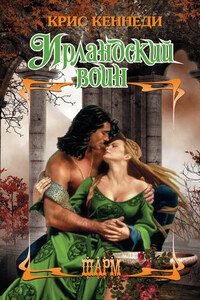Chapter One.
The Man of the Moment
“That man knows too much!”
“Do you really think he overheard?”
“He may not have done. But we must take no risks, my dear fellow. Remember we are at war! With people who know too much there’s but one way – dismissal,” declared Lewin Rodwell, the tall, well-groomed middle-aged man, in morning-coat and grey trousers, who stood in the panelled boardroom with his chairman, Sir Boyle Huntley, the other directors having left after the weekly meeting of the board.
“He might talk – eh?” Sir Boyle remarked in a low, apprehensive tone.
“He would probably fear the law of libel,” said Lewin Rodwell, fair-haired, sleek, rather refined, who, at the moment, was one of the most popular and patriotic figures in London – a man whose praises were sung constantly in the halfpenny press, and who numbered peers, Cabinet Ministers and diplomats among his friends.
His companion, ten years his senior, was of a different type – a somewhat uncouth man, with a reddish, bloated face, dark hair tinged with grey, deep-set crafty eyes, and a voice which betrayed his cockney birth and breeding, which even his Birthday baronetcy could not disguise.
Both men, of humble origin, had won considerable fortune in the City and had worked together on the boards of many companies more or less prosperous. They were “keen business men” – which, in these days, seems to be the accepted description of those who are not above descending to sharp practices – and indeed, if the truth be told, had been guilty of certain financial juggling which would have looked very ugly against them if placed before a court of law.
Yet what they had done had been done within the law, and their hands were, consequently, just as clean as those of hundreds of other company-directors in the City of London.
Rodwell, with his back to the fire – for it was a cold, dark November afternoon in the year 1914 – slowly lit a good cigar which he took from his case, while Sir Boyle fidgeted uneasily with some papers at the table.
“How shall you get rid of that unnecessary fellow?” he asked his friend at last. “If he were dismissed now, he’d at once guess the reason, and might become our enemy.”
“Enemy! Bosh!” laughed Lewin Rodwell, scornfully. “There’s no fear of that, my dear chap. Leave him to me. I shall do nothing till after our meeting next Thursday. Then we can call in Charlesworth and tell him that the fellow – Sainsbury is his name, I believe – is a slacker, and ought to join the army. Owing to the war we must cut down expenditure – you know. He must go, and several others too – in order to give our economy a flavour of truth.”
“Charles worth has always spoken very highly of him. He’ll certainly urge us to keep him,” the chairman remarked, looking blankly into the fire. “Only a fortnight ago his name was on the list of employees to be retained throughout the war.”
“I know. But if Sainsbury has overheard what I said, then he’s better outside this building than in it,” Rodwell declared emphatically, drawing heavily at his cigar.
“You were a confounded fool to speak of such matters outside your own room at home, Lewin. It was most indiscreet. It isn’t like you.”
“I know. I was a confounded fool,” the other admitted. “But I had no idea anyone had entered. He wears those infernal rubber things on his heels. But leave it to me. I’ll clear him out all right.”
“It must be done most delicately. He mustn’t, for a single moment, suspect the reason of his dismissal.”
Lewin Rodwell reflected for a second, and then, as though in his active, clever brain a sudden suggestion had arisen, he laughed and replied:
“There are more ways than one by which to crush an enemy, my dear Boyle – as you yourself know. Leave all to me, and I can guarantee that we shall have nothing to fear from this young prig, Sainsbury. So set your mind at ease at once over it.”
“Very well, Lewin. I know how clever you always are in avoiding trouble,” laughed Sir Boyle Huntley. “Had it not been for you we’d both have more than once been in a very tight corner. As it is we’ve prospered famously, and – well, I suppose the world thinks quite a lot of us – especially of you – the man who does so much good and charitable work without any thought of reward – purely as a patriotic Briton.”
Lewin Rodwell winked knowingly, and both men laughed aloud.
Rodwell’s eye caught the clock. It was half-past four.
“By Jove! I must fly!” he cried. “I promised to be at Lady Betty’s soon after four. Trustram, of the Admiralty, will be there, and I particularly want to meet him. I’ve got my car. Can I drop you anywhere?”
“Yes. At the Constitutional. I’m meeting a man there.”
So the pair, leaving the room, were helped on with their overcoats by an obsequious liveried servant and, descending in the lift, passed through the handsome set of offices where a hundred clerks were working beneath the electric-light, and out into Gracechurch Street, where Rodwell’s fine limousine was awaiting him; the footman standing with the fur rug ready to throw over his master’s knees.














